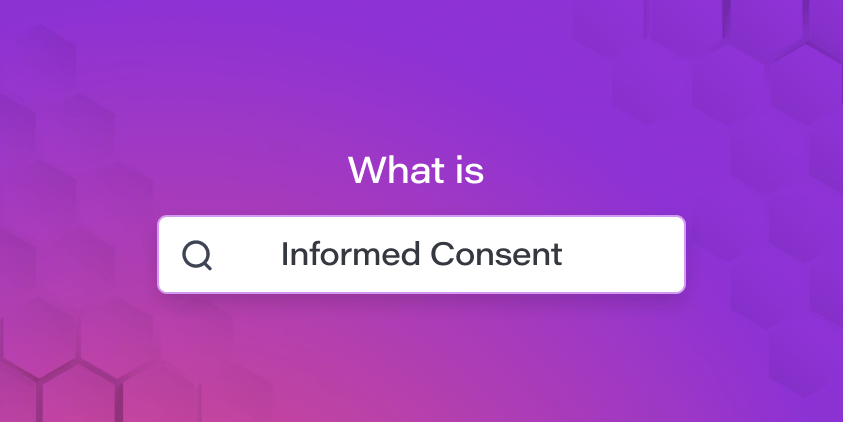Informed Consent in Healthcare: A Comprehensive Guide for Nurses
This article was written in collaboration with Christine T. and ChatGPT, our little helper developed by OpenAI.

Definition
Informed consent is a legal and ethical process in which a patient receives sufficient information about a proposed medical treatment or procedure, understands the potential benefits and risks, and voluntarily agrees to undergo the treatment or procedure. The process ensures that patients can make informed decisions about their healthcare and that healthcare professionals respect their autonomy.
Related Terms
- Autonomy: The principle of respecting a patient’s right to make decisions about their healthcare based on their values and preferences.
- Capacity: A patient’s ability to understand and appreciate the information provided during the informed consent process and make a decision based on that information.
- Shared Decision-Making: A collaborative approach between healthcare providers and patients, which involves discussing treatment options, exploring benefits and risks, and jointly deciding on the best course of action.
Synonyms, Definitions, and Examples
| Synonym | Definition | Example |
|---|---|---|
| Voluntary Consent | A patient’s agreement to undergo a medical treatment or procedure without coercion or undue influence. | A patient voluntarily agrees to receive a flu shot after discussing the benefits and potential side effects with their healthcare provider. |
| Express Consent | A patient’s explicit agreement to a medical treatment or procedure, typically given verbally or in writing. | A patient signs a written consent form for a surgical procedure after discussing the details with their surgeon. |
| Implied Consent | A patient’s non-verbal agreement to a medical treatment or procedure, inferred from their actions or the circumstances. | A patient holds out their arm for a blood pressure check, indicating their implied consent for the procedure. |
Assessment Techniques and Tools
Nurses play a crucial role in the informed consent process by providing patients with the necessary information, assessing their understanding and capacity, and ensuring that their decisions are voluntary. Some techniques and tools used in this process include:
- Active listening and effective communication skills to discuss treatment options, benefits, risks, and potential outcomes.
- Use of visual aids, written materials, or multimedia resources to help patients understand complex medical information.
- Employing the teach-back method, in which patients are asked to explain the information they received in their own words to ensure their understanding.
- Assessing a patient’s capacity using cognitive screening tools or standardized assessments, such as the Mini-Mental State Examination (MMSE) or the Montreal Cognitive Assessment (MoCA).
- Collaborating with the interdisciplinary healthcare team, including physicians, pharmacists, and social workers, to provide comprehensive information and support for patients.
Assessment Frameworks
Several assessment frameworks can guide nurses in the informed consent process, such as the American Nurses Association (ANA) Code of Ethics for Nurses and the Joint Commission’s Standards for Informed Consent. These frameworks emphasize the importance of patient autonomy, effective communication, and shared decision-making in the informed consent process.
Assessment Documentation
Proper documentation of the informed consent process is essential for legal and ethical reasons. Nurses should document the following information in the patient’s medical record:
- The patient’s capacity to make healthcare decisions and the assessment tools used to determine their capacity.
- The information provided to the patient, including potential benefits, risks, alternatives, and consequences of refusing treatment.
- The patient’s understanding of the information and any questions they had.
- The patient’s decision, either to consent or refuse treatment, and any preferences they expressed.
- Signed consent forms, if applicable, including the date, time, and names of witnesses.
Legal and Ethical Considerations
Informed consent is both a legal and ethical requirement for healthcare professionals. Failure to obtain informed consent may result in legal consequences, such as malpractice claims, as well as ethical concerns, such as violations of a patient’s autonomy and dignity. Nurses must be aware of their state’s laws and regulations regarding informed consent and follow best practices to protect their patients and themselves.
Real-Life Examples or Case Studies
In a real-life example, a nurse may be responsible for obtaining informed consent from a patient before administering a new medication. The nurse would discuss the purpose, potential side effects, and potential benefits of the medication with the patient, and answer any questions they may have. The nurse would then assess the patient’s understanding and capacity to make an informed decision, document the informed consent process, and administer the medication if the patient consents.
Resources and References
For more information on informed consent and best practices for nurses, the following resources may be helpful:
- American Nurses Association (ANA) Code of Ethics for Nurses
- The Joint Commission’s Standards for Informed Consent
- National Institutes of Health (NIH) guide on Informed Consent in Clinical Research
- Local nursing associations or boards of nursing for state-specific guidance on informed consent
Conclusion
Informed consent is a vital aspect of patient-centered care and nursing practice. By understanding the principles of informed consent and utilizing effective assessment techniques, nurses can support patients in making informed healthcare decisions and uphold ethical and legal standards within their profession.
